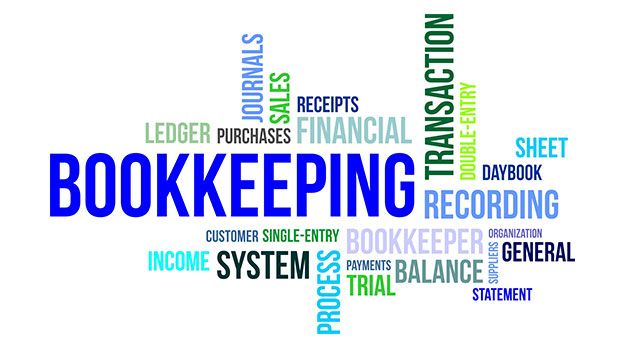
A Board of Advice Helps!
Improving Your Business
An awareness of Corporate Governance is important for Directors and Leadership Team Members.
A Director is not an expert in everything, therefore Advisers can supply backup knowledge.
A Terms of Engagement Agreement for the Board Of Advice Members is important.
A Board of Advice is not a social event – it is serious business and the persons appointed should supplement the skills of the Director.
Some Directors have benefited from appointing a Board of Advice to overcome the Loneliness of being the sole or only active Director.
The Final Decision on any issue should always be made by the Director(s).
Running a Business is challenging
There are a whole range of issues confronting SME business operators, whether they are operating as a sole trader, in a partnership or through a company.
An awareness of ‘Corporate Governance’ is very important as this is a key component on the structure for all businesses, whether they are incorporated as a company or not.
Why is it important?
Corporate Governance includes:
- An awareness of regulatory requirements.
- Keeping up-to-date with the legal and regulatory requirements that apply to your type of business.
- Being aware of the risks confronting the business and ensuring that appropriate strategies have been developed and are routinely reviewed to mitigate financial, reputational and legal risks for the business.
- What is happening with issues such as consumer demand? What are your customers’ requirements relating to environmental issues, social and ethical issues relative to the products that you are selling, the reputation of businesses that you are securing products from?
- All of these activities can have a significant impact on your customers and need to be given ongoing consideration within the business.
- Having a clear understanding of your ‘Strengths and Weaknesses’ is very important for business operators. You need to decide whether you are going to undertake additional study to overcome the perceived weaknesses, or are you going to hire a part-time or full-time executive to assist you in the areas that in which you believe you have a weakness.
Businesses cover a wide number of disciplines including:
- Purchases of raw materials
- Management of team members – training – counselling
- Design of products and services to be produced
- Research and Development
- Planning
- Production
- Marketing and promotion
- Selling
- Accounting and Administration – are you the CFO for your business or do you have one?
- Budgets and Cash Flow Forecasts (Predictive Accounting)
- Funding for the business
- Environmental issues
- Legal and contractual matters
The challenge for the owner/CEO is how you coordinate these various disciplines to ensure that the team works in an effective manner.
Corporate Governance is an important subject for all businesses, particularly companies.
Obviously, private companies must have at least one Director (unless the company’s Constitution stipulates there must be more than one Director) and many companies only have two Directors.
In many two Director companies, one of the Directors is virtually a ‘silent’ Director.
This can be an unfortunate situation as the sole Director or the only active Director is not receiving ‘informed input about the business’ from a person with equal standing to the Director.
In many companies team members are not going to argue the point with a Director, because they feel overwhelmed by the Director’s authority. That can be an unfortunate position for the company as alternative strategies to what is being discussed may have been the correct position, if the person presenting them had the confidence of their convictions to do so.
The concept of a Board of Advice has assisted in overcoming the loneliness of being the ‘sole’ Director of a company for many Directors.
A Board of Advice should not be a social event. It is serious business and the people appointed should not be just mates of the Director if the Director wants to develop knowledge and skills from the association with a few people who have different skills, knowledge and abilities to him/her.
A Board of Advice is not incorporated within the Corporations Act and therefore the members should only give advice and not give any instructions to a Director or any team members.
The final decision on any issue should always be made by the Board of Directors.
The key aspect of establishing a Board of Advice is that there will be regular meetings, preferably monthly, on a set day and time. There should always be an Agenda and reports on the activities of the company should be sent to the Board of Advice members at least seventy-two hours prior to the meeting. This will allow time for the Board of Advice to read the reports and turn up or tune in (if they are accessing remotely) with their ‘brain in gear’ because they have read the reports and have given consideration to what has been reported so that they are in a position to give advice to the Director.
There needs to be a system of when meetings will be held and the reports to be submitted if a Board of Advice is going to add value to the Director.
A system needs to be established for the preparation of reports relating to:
- Manufacturing or the purchase of products for sale
- Supplies sourcing
- Inventory levels summaries
- Sales
- Digital sales
- Social media commentary affecting the industry and the company
- Debtors – Debtors’ Days Outstanding
- Creditors – Creditors’ Days Outstanding and exposure for special class creditors
- Financial performance report for the previous month
- Key Performance Indicators (KPIs) and business metrics
For effective advice, the Director should ensure that details of bank negotiations are supplied to the Board of Advice.
Details of capital expenditure are submitted.
When developing or updating the Business Plan, the Board of Advice members should have some involvement even if it is only the overview.
It is important that the Leadership Team are briefed on the reasons for the appointment of a Board of Advice and understand the material that will be submitted to the Board of Advice Members.
The Director should ensure that he/she negotiates a Board of Advice Member Terms of Engagement document, which should be the same for each of the current Board of Advice Members relating to:
Appointment
Remuneration
Board of Advice Member outlays reimbursement
Board of Advice Member’s engagement if engaged for any other professional services
Details of when meetings will be held
Confirmation that all documentation is confidential
The process for the preparation of Minutes of Board of Advice Meetings
Details of any other assignments that might be allocated to a Board of Advice Member.
To be effective, the Board of Advice Members should receive reports and communications at least three working days prior to the meeting, so that they turn up to meetings with their ‘brain in gear’, ready to offer advice on issues to which they have been alerted.
Many Company Directors, especially if they are the sole Director, find they have difficulties because they normally have to make all of the decisions alone.
A properly structured, well thought out and organised Board of Advice can be a significant benefit for many Directors of private companies. They have a small group of people who understand business, who are able to listen and advise them on sensitive issues.
To find out more contact Peter Towers the Founder and Managing Director of Towers Business Development and a former Chief Financial Officer and Company Secretary of a Listed Public Company please do not hesitate to contact us - 1800 232 088 or email peter@towersbusiness.com.au and we will set up a complimentary Zoom meeting to discuss.
Stay safe!











































